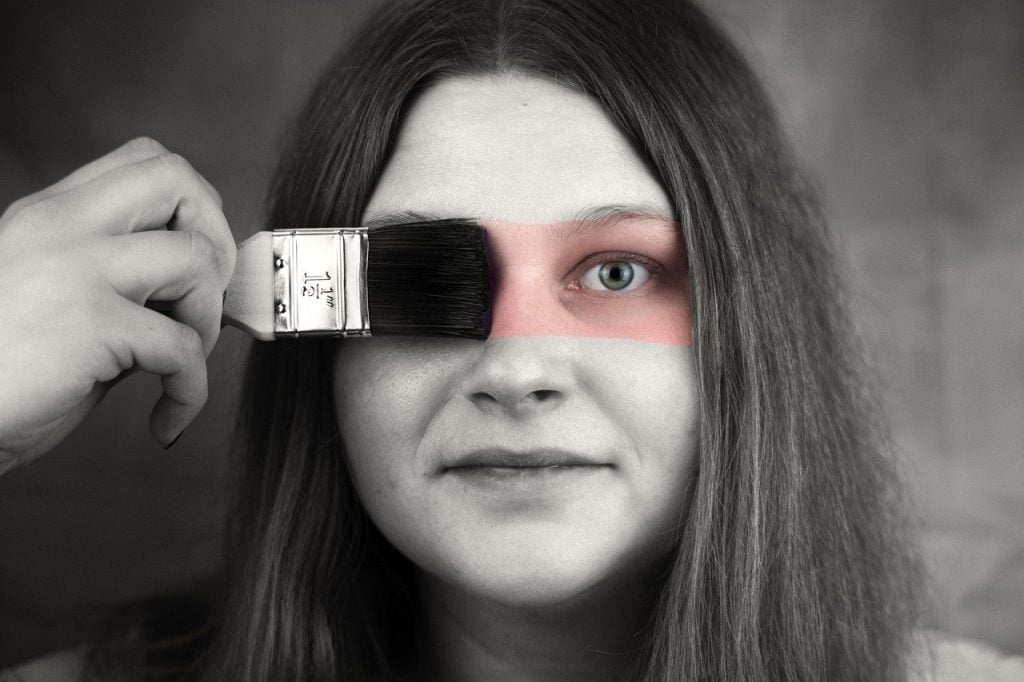On May 21, CVS Pharmacy announced that it has reached its goal of full transparency for beauty imagery produced by and for CVS Pharmacy and so will do its best to get CVS Pharmacy Beauty Mark 100% compliance. As the first major retailer to implement these standards, CVS has driven a marked shift in industry standards for post-production alterations of beauty imagery.
“CVS Pharmacy is focused on helping our customers in their journey to better health and beauty is no exception,” said Neela Montgomery, President of CVS Pharmacy and Executive Vice President, CVS Health. “As we reach 100 percent completion of Beauty Mark in our beauty aisles, we are proud to lead the beauty industry in making a bold statement that supports the mental health of our customers especially young women. We hope this authenticity will continue as the pandemic has created new and different issues in this space.”
CVS Pharmacy Beauty Mark
On January 2018 CVS launched a new initiative to create new standards for post-production alterations of beauty imagery it creates for stores, websites, social media and any marketing materials.
The company also announced that it will introduce the “CVS Beauty Mark,” a watermark that will be used to highlight imagery that has not been materially altered. For this initiative, materially altered is defined as changing or enhancing a person’s shape, size, proportion, skin or eye color, wrinkles or any other individual characteristics. CVS Pharmacy will be working together with key brand partners and industry experts to develop specific guidelines in an effort to ensure consistency and transparency.
“As a woman, mother and president of a retail business whose customers predominantly are women, I realize we have a responsibility to think about the messages we send to the customers we reach each day,” said Helena Foulkes, President of CVS Pharmacy and Executive Vice President, CVS Health. “The connection between the propagation of unrealistic body images and negative health effects, especially in girls and young women, has been established. As a purpose-led company, we strive to do our best to assure all of the messages we are sending to our customers reflect our purpose of helping people on their path to better health.”
Next Phase of Beauty Mark
CVS Pharmacy is also announcing the next phase of Beauty Mark, centered on the mental health impact women are facing due to increased screen time and the effects of turning the cameras on themselves. This year, CVS partnered with renowned media psychologist Dr. Pamela Rutledge to conduct an online survey through The Harris Poll among women ages 18-35. The survey aimed to uncover what transparency in beauty means for women now that the pandemic has changed how we work, attend school and socialize.
Survey results of women ages 18 to 35 demonstrated the increased relevancy of the CVS Beauty Mark, while addressing the mental ramifications of not only viewing unrealistic imagery of others, but of constantly evaluating one’s own reflection during a period of heightened use of video calls and social media consumption:
- 80% of women who spend at least one hour looking at their own image daily agree that they feel inspired when they see unaltered images of models online.
- More than half (56%) say they would rather give up something they love for a week than post a photo online about which they don’t feel confident.
- “Unaltered imagery” has taken on a new meaning, with nearly half of women who spend time on video calls in a typical week (45%) sharing that they use filters to touch up or alter their appearance on these calls.
- This isn’t surprising when you consider that one in three (34%) say that they are less confident in their appearance than they were a year ago (i.e. before the COVID-19 pandemic).
“We’re facing an elevated crisis around self-confidence, with 78% of women ages 18 to 35 now spending time on video calls each week, and many (37%) spending at least five hours on video calls in a typical week,” said Dr. Rutledge. “In addition to the external pressures on women are encountering, constantly evaluating one’s own reflection is having a significant impact on their mental health.”

